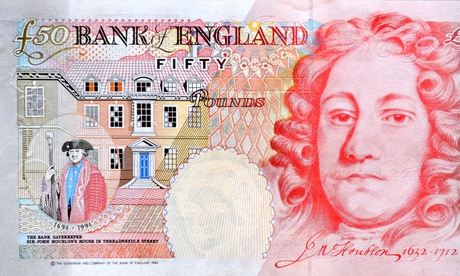
Which currency would Scotland use after independence?
It is still unclear. The Scottish National party wants to keep the pound in the event of a yes vote, but there is no guarantee it would be permitted to do so by Westminster. Other possible options would be the creation of a separate Scottish currency or Scotland joining the euro.
What does the Bank of England think?
The Bank is sitting on the fence, with governor Mark Carney arguing that in the event of a yes vote, any arrangement to retain sterling would be a matter to be thrashed out between Westminster and the Scottish parliament.
What would change if Scotland was permitted to keep the pound?
The rest of the UK and Scotland would have to form a "currency union", in the same way member states did when the eurozone was created, with the details carefully negotiated with Westminster. Scottish interest rates would be set by the Bank of England.
Holyrood would hope to draw up a "fiscal sustainability agreement" with the rest of the UK. Tax and spending policies would more than likely have to be co-ordinated otherwise the risk of out-of-control spending in one country could affect economic stability and inflation, destabilising the currency.
And financial markets would be likely to assume that in the event of a fiscal crisis, Scotland would be bailed out by the rest of the UK. London would therefore have a strong incentive to ensure that Scotland kept its tax-and-spending policies under strict control.
What can the yes camp take from Mark Carney's speech?
That in theory, an independent Scotland could retain the pound and fall within the Bank of England's rate-setting remit.
And the no camp?
Opponents of Scottish independence could argue that the eurozone crisis has taught us that a currency union is hugely complex and risky. And as Carney puts it, Scotland would have to partly cede national sovereignty, just at the moment when it was seeking to loosen its ties with the UK.
What would Brussels think about all this?
It's complicated. Scotland has said it would like to join the European Union, as an independent country, as soon as it gained independence. But while the UK has secured a special exemption from having to join the single currency, new EU member states are expected to sign up for membership of the euro, too: it's part of the package. As a new EU country, Scotland might struggle to explain why it wants to remain outside.
How would the Bank of England's role change?
The Bank already sets monetary policy based on the economy of the UK as a whole; but the SNP says it would regard an independent Scotland as a "shareholder" in the Bank. That would presumably require decision-makers in Threadneedle Street to take special account of Scotland's needs.
Why doesn't Scotland just launch its own currency?
It could – but Edinburgh judges that the UK and Scottish economies are so closely interlinked that a separate currency might create unnecessary barriers: creating uncertainties for the many companies that operate across the border, for example, as the exchange rate between the pound and the new currency fluctuated.
There might also be a risk that, at least in the years before North Sea oil revenues diminish, a Scottish pound would effectively become an oil currency, strengthening in relation to the pound. That could potentially expose Scotland to the so-called "Dutch disease": countries with natural resources can suffer from an over-strong exchange rate, which disadvantages its exporters in other sectors. Since much of the SNP's economic vision is based on re-industrialising Scotland, an outbreak of Dutch disease would be a disaster. Sterling is sometimes partly seen as a resource currency in this way; but the UK as a whole is far less dependent on oil and gas extraction than Scotland.

